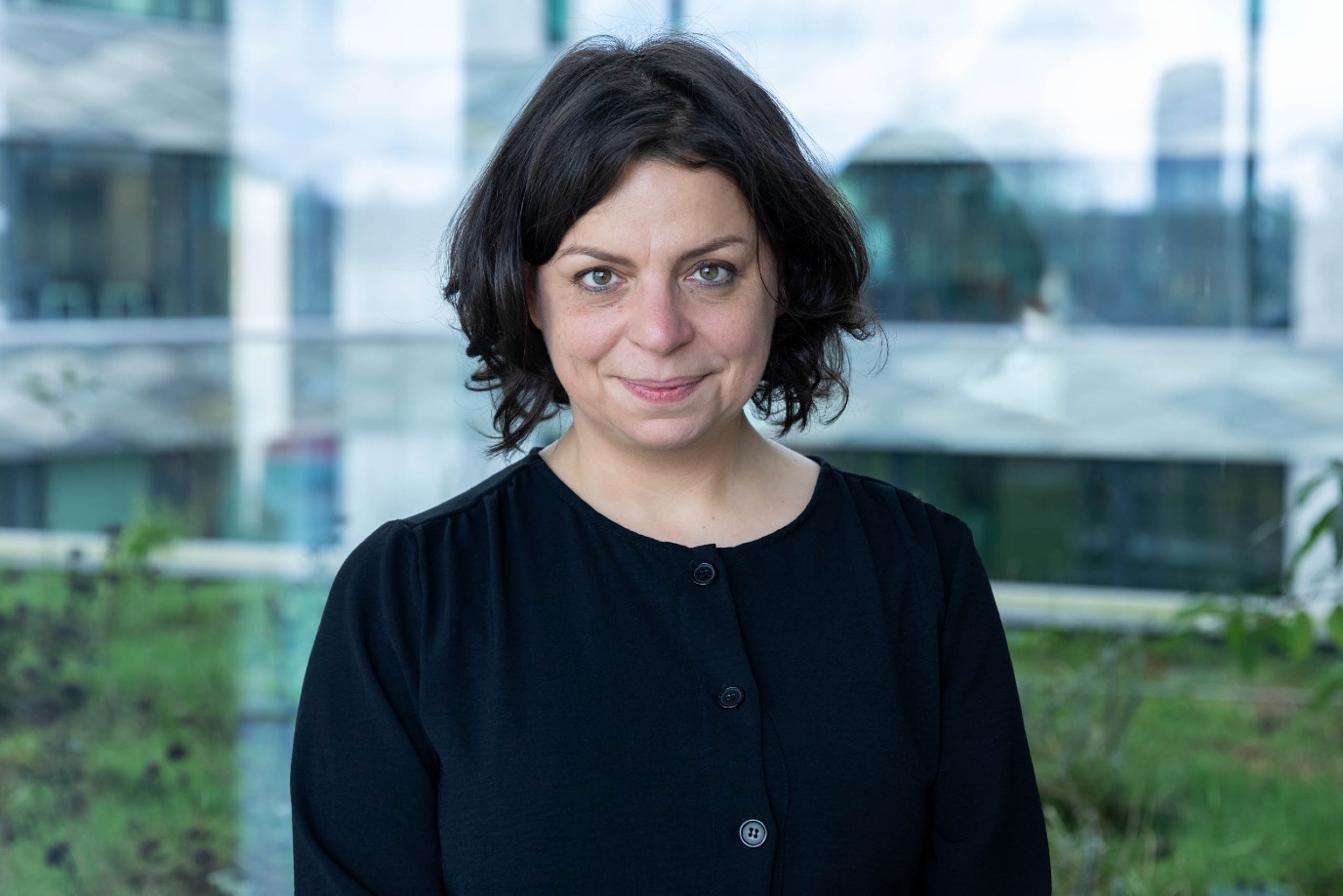Nathalie Katsonis wins Ammodo Science Award 2025
For her pioneering research on molecular systems, Prof. Nathalie Katsonis of the Faculty of Science and Engineering (UG) will receive the Ammodo Science Award for fundamental research 2025. Inspired by biological systems, Katsonis develops materials that can bend, react and communicate with their environment. These materials can be used in soft robotics, drug delivery, or for smart coatings in green buildings.
Katsonis will receive a cash prize of EUR 350,000. She can use that money in the coming years to explore new avenues in fundamental research. The award ceremony will take place on Wednesday May 7 at the Rijksmuseum in Amsterdam.

Molecular machines
Katsonis opened a whole new field of research with her work on so-called ‘molecular machines’. By getting these minuscule molecules to work together and in a coordinated way, she managed to create so-called smart materials that respond and even adapt to changes in their environment. They can change colour like chameleons, pulse like heart tissue, coil like plant tendrils, stiffen like muscles and even explode like seed pods. Her breakthrough represents a fundamentally new approach in materials science, where the material adapts to its environment and becomes the device itself. Like the leaf of a tree is also a solar cell at the same time.
Looking beyond boundaries
Katsonis combines insights from supramolecular chemistry, nanotechnology and the natural sciences. The jury therefore praises her for her ability to look beyond the boundaries of different scientific fields. Currently, Katsonis is working on an ambitious new goal: understanding how life on Earth originated. In doing so, she will focus on RNA, a molecule that is also a molecular machine, and was crucial for the emergence of the first living cells. By understanding how RNA works in simple models of the first cells, she hopes to contribute to practical applications such alternative delivery systems for drugs and vaccines.
Read more
| Last modified: | 15 April 2025 09.35 a.m. |
More news
-
15 April 2025
1.5 million funding from Province of Groningen for innovative technology in the region
The University of Groningen will receive nearly 1.5 million euros in funding from the Province of Groningen to assist entrepreneurial academic researchers in developing innovative ideas into a startup.
-
15 April 2025
Fundamental research with life-size effects
Nathalie Katsonis has won the Ammodo Science Award for Fundamental Research. She develops adaptive molecular materials and studies the chemical origins of life, which in turn yield insights for vaccines and clearing up oil spills at sea.
-
15 April 2025
Students test mini-satellites in municipality of Oldambt
Two student teams from the University of Groningen and Hanze University of Applied Sciences will test two self-built mini-satellites in the municipality of Oldambt on April 24.
